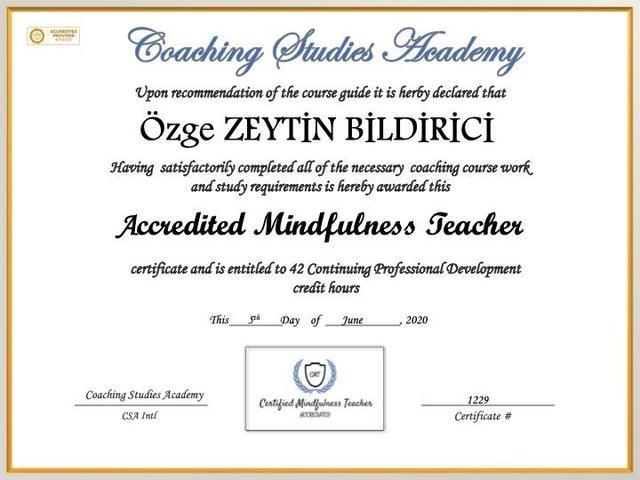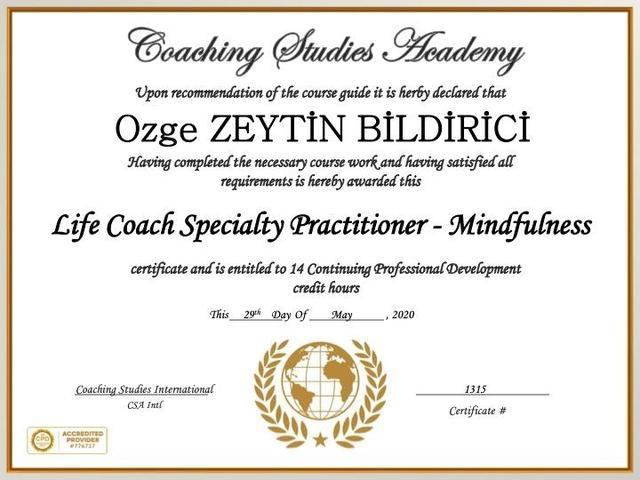Özge Zeytin Bildirici
About Özge Zeytin Bildirici Hi, I am Özge Zeytin Bildirici. I am a university lecturer, mindfulness life coach and an accredited mindfulness teacher. I am not only the person who tells you what to do, but also the person who used the techniques in my life. I, myself lost 20 kg by using mindful eating. If you suffer from anxiety, stress, being overweight or in debt, I can help you. change your mind, change your life. |


Özge Zeytin Bildirici doesn’t have reviews yet.
Click the button below to leave the first one!
New session One to One Mindfulness Coaching Session already available! Book it now
New session One to One Mindful Eating Coaching already available! Book it now
New article Mastering Mindful Eating: Cultivating a Positive Relationship with Food already available! Read it now
Hello, everyone. I am a new user of this platform. I am both an accredited mindfulness teacher and a mindfulness life coach. I want to get your ideas about my articles. Thanks
#general
New article The Power of Mindful Eating: How to Develop a Healthier Relationship with Food already available! Read it now